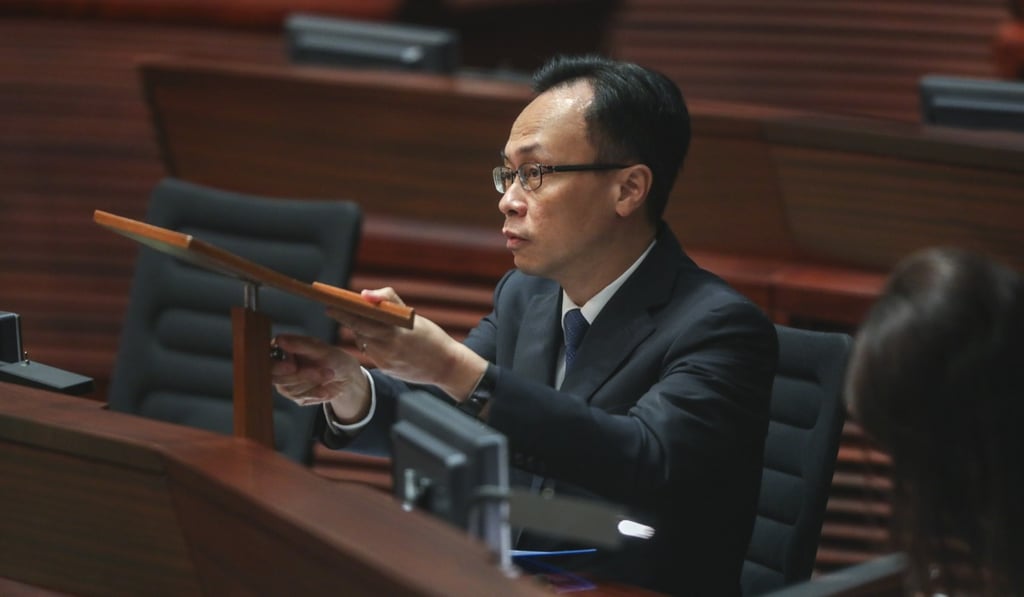Hong Kong protests: with nearly 5,000 doxxing complaints since unrest erupted, officials mull new powers for privacy commissioner
- Constitutional affairs minister tells legislature personal information ‘has been weaponised’
- The commissioner’s office has for years been mocked as a “toothless tiger”, for its lack of power to conduct criminal investigations

Hong Kong’s privacy watchdog has received more than 4,700 complaints over doxxing since the current social unrest began last June, as the government plans to give the office more powers to tackle what it called the “weaponised” use of personal information.
During a Legislative Council meeting on Wednesday, constitutional affairs minister Patrick Nip Tak-kuen said the government would consult lawmakers over the amendment to the Personal Data (Privacy) Ordinance at a panel meeting on January 23.
“Personal information has been weaponised, so we and the Privacy Commissioner for Personal Data have to study how to amend the ordinance to handle these cases more effectively,” Nip said.
He said the commissioner’s office had made a series of suggestions on how to give the statutory body more power. They included granting it the power to have social media platforms and other websites remove certain posts, to conduct criminal investigations, and even to launch prosecutions over the misuse of personal information, he added.

The commissioner’s office has for years been mocked as a “toothless tiger”, for its lack of power to conduct criminal investigations. It can only pass complaints to the police, if it deems that necessary, with any prosecution launched by the Department of Justice.